Find Help
More Items From Ergsy search
-
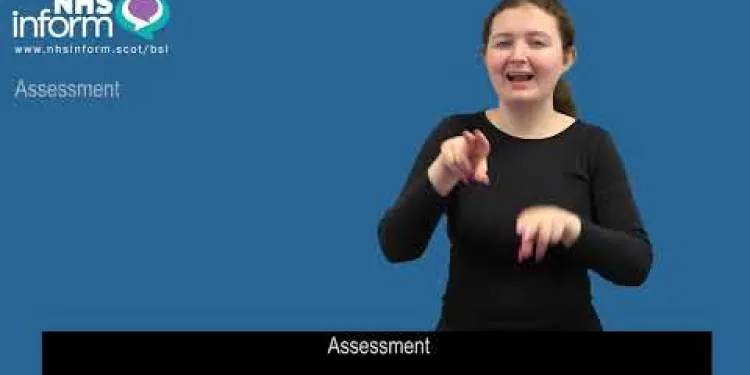
BSL - Diagnosis of obsessive compulsive disorder (OCD)
Relevance: 100%
-
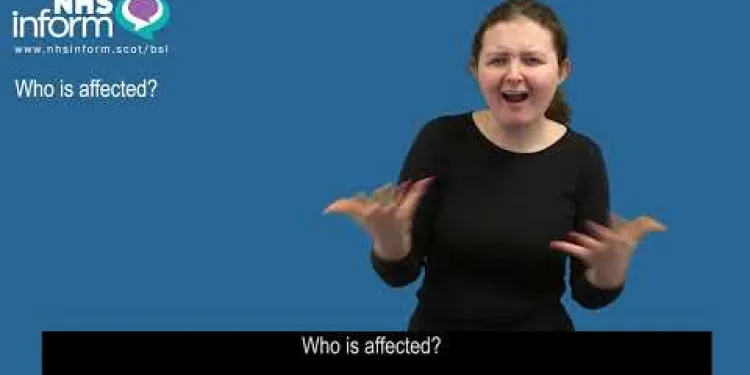
BSL - Introduction to obsessive compulsive disorder (OCD)
Relevance: 98%
-
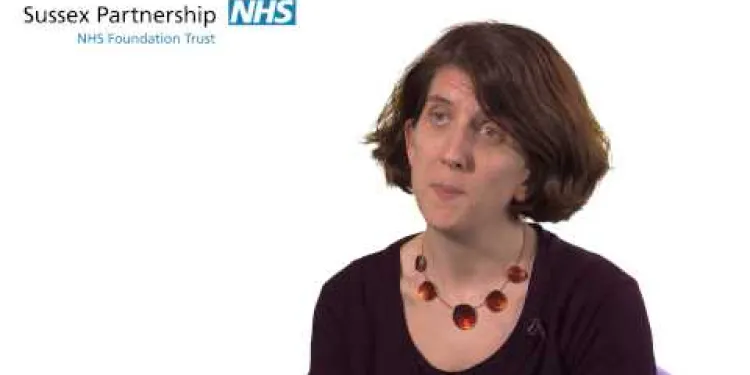
Clara Strauss: What is Obsessive Compulsive Disorder OCD
Relevance: 97%
-
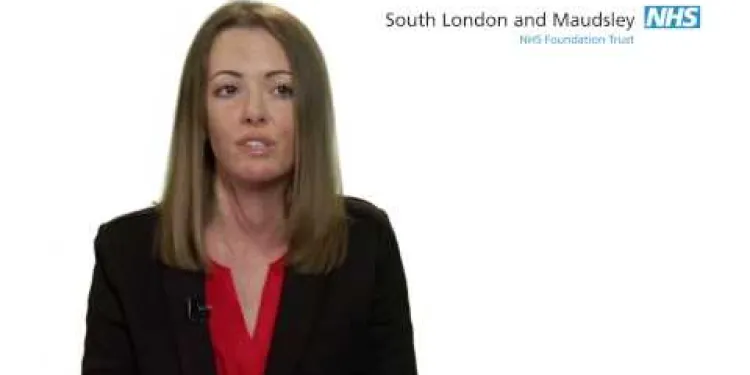
OCD
Relevance: 64%
-
Can eating disorders occur with other mental health conditions?
Relevance: 32%
-
What are common symptoms of eating disorders?
Relevance: 26%
-
What is an eating disorder?
Relevance: 25%
-

How do eating disorders affect mental health?
Relevance: 24%
-
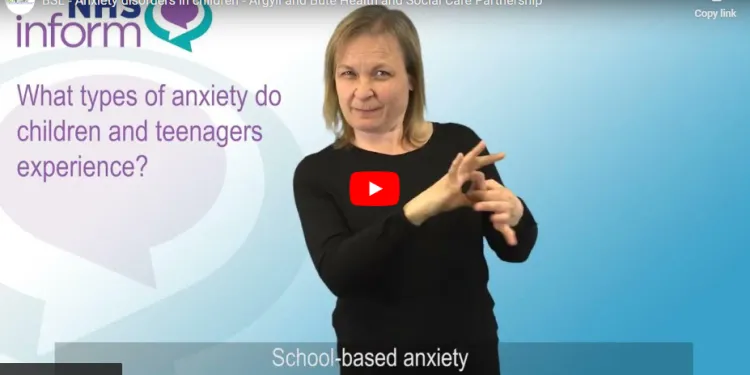
What type of anxiety do children and teenagers experience?
Relevance: 24%
-
What is body dysmorphia and how is it related to eating disorders?
Relevance: 23%
-
What are the early warning signs of an eating disorder?
Relevance: 22%
-
Are there preventative measures for eating disorders?
Relevance: 21%
-
Who is at risk for developing an eating disorder?
Relevance: 21%
-
What is an Eating Disorder?
Relevance: 20%
-
How can someone seek help for an eating disorder?
Relevance: 19%
-
Are eating disorders only about food?
Relevance: 19%
-
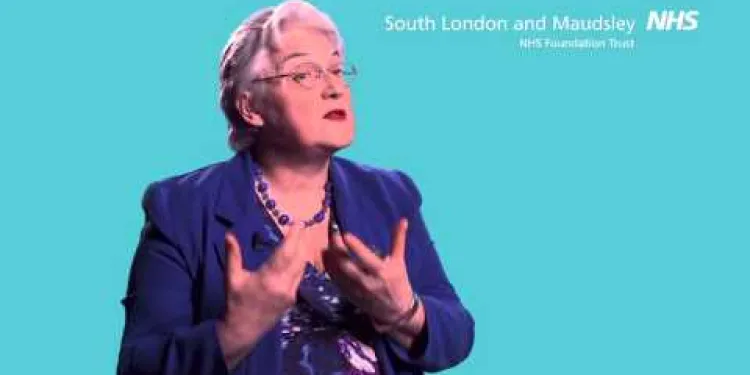
Eating disorders: treatment
Relevance: 18%
-

Living with Bipolar Disorder
Relevance: 18%
-

What is the impact of eating disorders on physical health?
Relevance: 18%
-
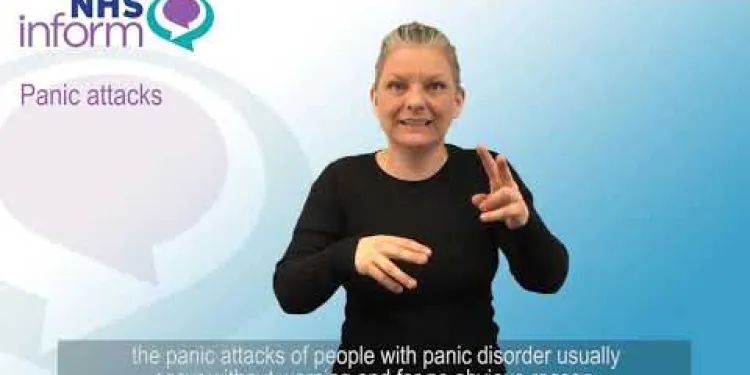
BSL - Diagnosis of panic disorder
Relevance: 17%
-
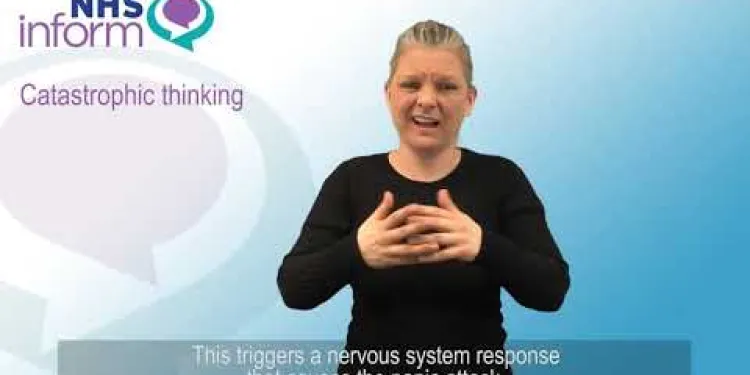
BSL - Causes of panic disorder
Relevance: 17%
-
How are eating disorders diagnosed?
Relevance: 17%
-
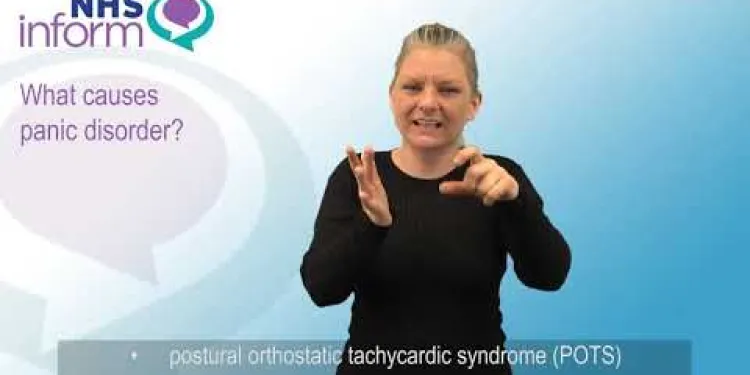
BSL - Introduction to panic disorder
Relevance: 17%
-
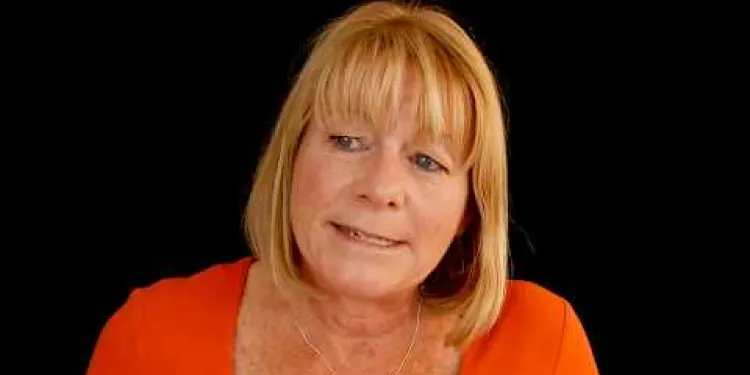
The treatment approach for an eating disorder
Relevance: 17%
-
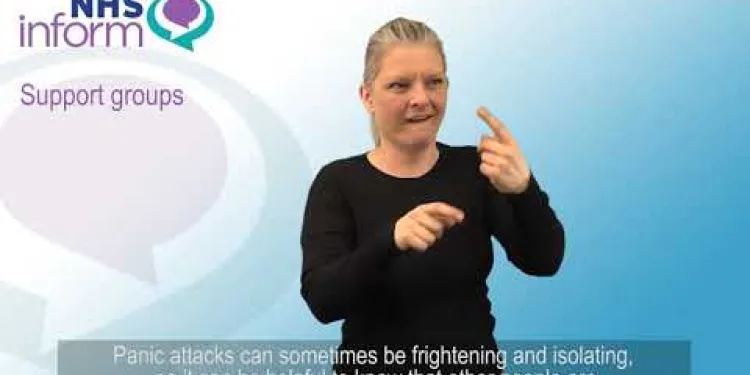
BSL - Treatment of panic disorder
Relevance: 17%
-
Can eating disorders be treated?
Relevance: 17%
-
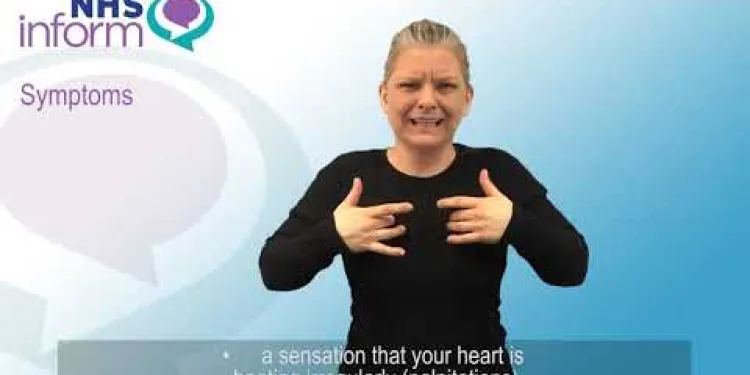
BSL - Symptoms of panic disorder
Relevance: 17%
-
What are the main types of eating disorders?
Relevance: 17%
-

Bipolar disorder: Rod's story | NHS
Relevance: 16%
-
Is it possible to recover from an eating disorder?
Relevance: 16%
-

What is health-related anxiety?
Relevance: 16%
-
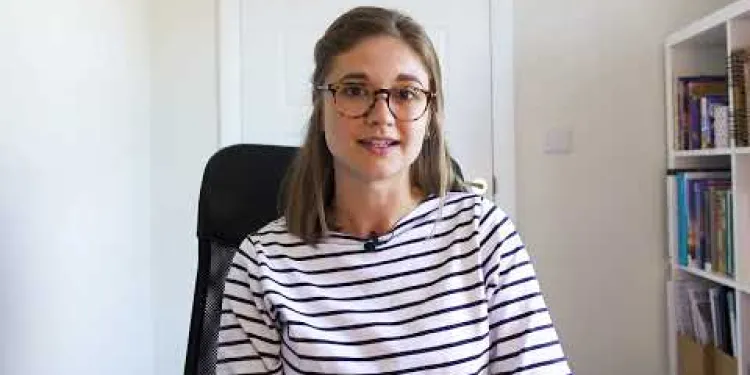
Jess Rann - Specialist Eating Disorders Dietitian
Relevance: 16%
-
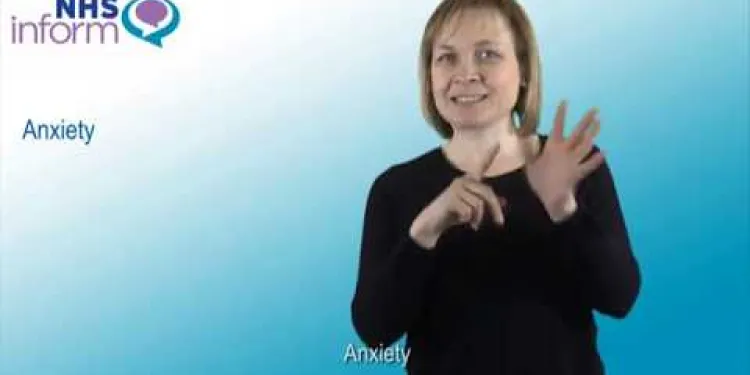
Generalised anxiety disorder (GAD)
Relevance: 16%
-
What is the role of therapy in treating eating disorders?
Relevance: 16%
-
What are the long-term effects of untreated eating disorders?
Relevance: 16%
-
What are some common myths about eating disorders?
Relevance: 16%
-

Short Films About Mental Health - Personality Disorders
Relevance: 15%
-

How common is Seasonal Affective Disorder?
Relevance: 15%
-

What is seasonal affective disorder - or SAD?
Relevance: 15%
-

What is Seasonal Affective Disorder (SAD)?
Relevance: 15%
Introduction to Obsessive Compulsive Disorder (OCD)
What is OCD?
Obsessive Compulsive Disorder, commonly referred to as OCD, is a mental health condition where individuals experience recurring, unwanted thoughts, ideas, or sensations (obsessions). These obsessions lead to repetitive behaviors or actions (compulsions) that they feel driven to perform. The behavior is aimed at reducing the anxiety associated with the obsessions, but often the relief is temporary, leading to a cycle of obsessions and compulsions.
Symptoms of OCD
Individuals with OCD may have symptoms that include both obsessions and compulsions, though some may experience only one or the other. Common obsessions include excessive fear of germs, aggressive thoughts towards oneself or others, and the need for symmetry or exactness. Compulsions might involve excessive cleaning, repeated checking (like ensuring the door is locked), ordering items in a precise manner, or counting.
Impact of OCD in the United Kingdom
OCD is a condition that affects individuals worldwide, including many in the United Kingdom. It can significantly impact daily life, work, and relationships. According to the Mental Health Foundation, approximately 1.2% of the UK population is affected by OCD. While it can begin at any age, symptoms commonly start during childhood, adolescence, or early adulthood.
Treatment Options
Treatment for OCD typically involves a combination of therapy and medication. Cognitive Behavioural Therapy (CBT), particularly Exposure and Response Prevention (ERP) therapy, has proven effective in reducing symptoms. Medications such as selective serotonin reuptake inhibitors (SSRIs) are also commonly prescribed. Accessing support through mental health services and joining support groups, both online and in-person, can be beneficial for those living with OCD.
Getting Help
If you or someone you know is struggling with OCD, it's important to seek help. Contact your GP for advice on the next steps, or reach out to mental health organizations such as OCD-UK and Anxiety UK for resources and support. Remember, OCD is a manageable condition with the right treatment and support.
Introduction to Obsessive Compulsive Disorder (OCD)
What is OCD?
Obsessive Compulsive Disorder, or OCD, is when people have thoughts that come back again and again. These are called obsessions. Because of these thoughts, people with OCD might do things over and over. This is called compulsions. They do these things to feel less worried, but the worry usually comes back. This can make a cycle.
Symptoms of OCD
People with OCD can have obsessions, compulsions, or both. Some common obsessions are being very afraid of dirt, having scary thoughts about hurting self or others, or wanting things to be in a perfect order. Common compulsions include washing hands a lot, checking things many times (like making sure the door is locked), putting things in order, or counting numbers.
Impact of OCD in the United Kingdom
OCD affects people all over the world, including in the UK. It can change how someone lives every day, works, or gets along with others. About 1.2% of people in the UK have OCD. People can start to have OCD at any age, but it often starts when they are children, teenagers, or young adults.
Treatment Options
People with OCD can get help from therapy and medicine. One type of therapy that helps is called Cognitive Behavioural Therapy (CBT), which includes doing something called Exposure and Response Prevention (ERP). Medicines called SSRIs can also help. Getting support from mental health services and joining groups can be good for people with OCD.
Getting Help
If you or someone you know has a hard time with OCD, it is important to get help. You can talk to your doctor for advice on what to do next. There are also groups like OCD-UK and Anxiety UK that can help with resources. Remember, OCD can be managed with the right help and support.
Frequently Asked Questions
What is OCD?
Obsessive-Compulsive Disorder (OCD) is a mental health condition where a person has obsessive thoughts and compulsive behaviours.
What are obsessions?
Obsessions are unwelcome and distressing thoughts, images, or urges that repeatedly appear in your mind.
What are compulsions?
Compulsions are repetitive behaviours or mental acts that a person feels driven to perform to reduce anxiety caused by obsessive thoughts.
What causes OCD?
The exact cause of OCD is not known, but it is thought to involve a combination of genetic, neurological, behavioural, cognitive, and environmental factors.
How common is OCD in the UK?
OCD affects about 1-2% of the UK population, meaning approximately 740,000 people live with the condition.
Can OCD be cured?
While there is no 'cure' for OCD, it can be effectively managed with the right treatment, enabling individuals to lead fulfilling lives.
What treatments are available for OCD?
The main treatments for OCD include Cognitive Behavioural Therapy (CBT) with Exposure and Response Prevention (ERP) and medication such as selective serotonin reuptake inhibitors (SSRIs).
Is OCD hereditary?
There is evidence to suggest that OCD can run in families, although researchers are still working to understand the genetic link fully.
How is OCD diagnosed?
OCD is diagnosed by a mental health professional based on an assessment of your symptoms, behaviours, and their impact on your life.
Can children have OCD?
Yes, OCD can develop in children and adolescents, although it is often first noticed in late teens or early adulthood.
What is the difference between OCD and being a 'neat freak'?
Being a ‘neat freak’ is a personality trait involving a preference for cleanliness and order. OCD is a serious mental health condition characterized by distressing obsessions and compulsions.
Can stress cause OCD?
While stress does not cause OCD, it can exacerbate the symptoms and make them more difficult to manage.
Is OCD the same for everyone?
No, OCD affects people differently. The types and severity of obsessions and compulsions can vary widely from person to person.
Can lifestyle changes help manage OCD?
Yes, lifestyle changes such as regular exercise, healthy eating, adequate sleep, and stress management techniques can help improve overall well-being and manage OCD symptoms.
Where can I get help for OCD in the UK?
You can seek help from your GP, who can refer you to mental health services. Organisations like OCD-UK and OCD Action also offer resources and support.
What is OCD?
OCD means Obsessive-Compulsive Disorder.
It is a health problem that makes people have unusual thoughts (obsessions) and do things again and again (compulsions).
People with OCD might feel very worried, and they repeat actions to feel better.
For example, they may wash their hands many times because they worry about germs.
If you have OCD, it is important to talk to a doctor or a counselor. They can help.
Using a support group can also be helpful to talk to others who understand.
Obsessive-Compulsive Disorder, or OCD, is a condition of the mind. It makes a person have thoughts that won't go away and habits they feel they must do.
What are obsessions?
Obsessions are thoughts that get stuck in your head. These thoughts can make you feel worried or upset. They might keep coming back even if you try to forget them.
Some people have obsessions about things being clean. Others worry about making mistakes or needing things to be a certain way.
If these thoughts bother you, try talking to someone you trust. Deep breathing and counting to 10 can help you feel calm. Also, drawing or writing down your thoughts can be a good way to let them out.
Obsessions are thoughts, pictures, or feelings that keep coming into your mind. They can make you feel unhappy and worried.
What are compulsions?
Compulsions are things people feel like they have to do again and again.
Sometimes, this is because of worries that won't go away.
Doing these things might make the worries feel better for a little while.
Talking to a grown-up or a doctor can help.
Compulsions are things people do over and over again because they feel they have to. They do this to feel less worried about their upsetting thoughts.
Why do people get OCD?
We don't know exactly what causes OCD. But we think it might be caused by a mix of genes, brain differences, how we act, how we think, and things that happen around us.
How many people have OCD in the UK?
OCD is a short way of saying Obsessive Compulsive Disorder. It is a condition that makes people feel they need to do some things again and again.
In the UK, about 1 in 50 people have OCD. This means out of 50 people, one person might have OCD.
Some people might feel worried about having OCD. It is good to talk to a doctor for help.
Using easy tools, like keeping lists or setting small goals, can help manage OCD.
OCD is something that affects around 1 to 2 out of every 100 people in the UK. This means about 740,000 people in the UK have OCD.
Can OCD be fixed?
OCD stands for Obsessive Compulsive Disorder. It makes people have unwanted thoughts and do things over and over.
Right now, OCD cannot be fixed completely. But there are things that can help.
Doctors can give you medicine to help with OCD.
Talking to a therapist can also help you manage OCD.
There are special ways, like CBT, that can teach you how to deal with OCD.
If you or someone you know has OCD, talk to a doctor or a therapist.
Finding support from friends and family is also important.
There is no 'cure' for OCD, but you can get help to make it better. With the right help, people with OCD can live happy lives.
What can help with OCD?
There are ways to help if you have OCD.
- Talking Therapy: This means talking to someone who knows about OCD. They can help you understand your feelings.
- Medicines: A doctor might give you medicine to help you feel better.
- Support Groups: You can meet people who feel the same way you do. You can share your stories and help each other.
If you have OCD, tell a friendly adult or a doctor. They can help you find the right help.
The main treatments for OCD are talking therapy and medicine.
Talking Therapy: This is called Cognitive Behavioural Therapy (CBT). It helps you face your fears and learn new ways to handle them. This part is called Exposure and Response Prevention (ERP).
Medicine: There are special pills called selective serotonin reuptake inhibitors (SSRIs) that can help too.
Can you get OCD from your parents?
OCD means Obsessive-Compulsive Disorder. It's when people need to do things a certain way or have lots of worrying thoughts.
If someone's mom or dad has OCD, their kids might have it too. We say it can run in families.
But not everyone will get OCD, even if their parents have it.
It's a good idea to talk to a doctor or a counselor if you worry about OCD. They can help you feel better.
Using tools like talking therapy or relaxing exercises can help manage OCD.
OCD (Obsessive-Compulsive Disorder) can sometimes be found in families. Scientists are trying to understand how it is passed down through genes.
How do doctors find out if someone has OCD?
A doctor who helps people with their feelings can tell if you have OCD. They will look at how you feel, what you do, and how this affects your life.
Can kids get OCD?
Kids can have OCD. OCD stands for Obsessive-Compulsive Disorder. It means having thoughts or actions you can't stop, even if you want to. If you think a kid might have OCD, it's good to talk to a doctor or counselor. They can help make things better.
Here are some things that can help:
- Talk to a trusted adult: Tell a parent, teacher, or someone who listens well.
- Keep a feelings diary: Write or draw how you feel each day.
- Relax and breathe: Take slow, deep breaths when feeling worried.
- Play and have fun: Doing things you enjoy can make you feel better.
Remember, you're not alone, and there are people who can help you feel better!
Yes, OCD can start in kids and teens. Most people notice it when they are older teenagers or young adults.
How is OCD different from being a 'neat freak'?
Some people like things to be clean and tidy. This is called being a 'neat freak.'
OCD is different. It is a health problem in the brain. People with OCD feel worried if things are not just right. They have to check things or do things many times to feel calm.
To help understand this better, you can:
- Ask someone you trust to explain it to you.
- Use pictures to help you understand.
- Watch videos about OCD.
Some people really like things to be clean and tidy. We call this being a 'neat freak'. It's just something they like.
OCD, or Obsessive-Compulsive Disorder, is different. It is a serious problem with how someone feels. People with OCD have thoughts that really bother them and they feel they have to do things to make the thoughts go away.
Does stress make OCD happen?
Stress is when you feel worried and pressured.
OCD means Obsessive-Compulsive Disorder. This is when you can't stop worrying about things and do some actions again and again.
Stress can make OCD worse. It can make you feel more worried.
If you feel too much stress or have OCD, talk to someone who can help, like a doctor or a counselor.
Using tools like relaxing music, deep breathing, or drawing can help you feel better.
Stress does not cause OCD. But stress can make OCD symptoms worse and harder to handle.
Is OCD the Same for Everyone?
OCD can be different for each person. People with OCD may have different thoughts or actions that they feel they must do. Everyone's experience with OCD is unique.
People can use tools to help manage OCD, like talking to a doctor or counselor. Writing down thoughts can also be helpful.
No, OCD (Obsessive-Compulsive Disorder) is different for everyone. What people think about (obsessions) and what they feel they must do (compulsions) can be very different from one person to another.
Here are some tips that might help:
- Use pictures or drawings to understand better.
- Break down big words into smaller, easy words.
- Ask someone you trust to explain if you don’t understand.
Can changing your daily habits help with OCD?
Yes, changing your lifestyle can help you feel better and manage OCD symptoms. Try to:
- Exercise regularly
- Eat healthy food
- Get enough sleep
- Find ways to relax and reduce stress
These changes can make you feel happier and healthier.
Where can I find help for OCD in the UK?
If you have OCD and need support, here are some ideas:
- Talk to your doctor: You can ask your doctor for advice. They can help you find the right support.
- Look online: There are websites that can help you learn more about OCD. Try searching for OCD support in the UK.
- Support groups: You can join a group where people talk about OCD. It can help to meet others with the same experience.
- Helplines: You can call a helpline to talk to someone who understands OCD. They can listen and give you advice.
Remember, it's okay to ask for help. There are people who care and want to help you feel better.
You can ask your doctor for help. They can tell you about special services for mental health. Groups like OCD-UK and OCD Action can also help. They have lots of information and support.
Useful Links
This website offers general information and is not a substitute for professional advice.
Always seek guidance from qualified professionals.
If you have any medical concerns or need urgent help, contact a healthcare professional or emergency services immediately.
Some of this content was generated with AI assistance. We’ve done our best to keep it accurate, helpful, and human-friendly.
- Ergsy carfully checks the information in the videos we provide here.
- Videos shown by Youtube after a video has completed, have NOT been reviewed by ERGSY.
- To view, click the arrow in centre of video.
- Most of the videos you find here will have subtitles and/or closed captions available.
- You may need to turn these on, and choose your preferred language.
- Go to the video you'd like to watch.
- If closed captions (CC) are available, settings will be visible on the bottom right of the video player.
- To turn on Captions, click settings .
- To turn off Captions, click settings again.
More Items From Ergsy search
-

BSL - Diagnosis of obsessive compulsive disorder (OCD)
Relevance: 100%
-

BSL - Introduction to obsessive compulsive disorder (OCD)
Relevance: 98%
-

Clara Strauss: What is Obsessive Compulsive Disorder OCD
Relevance: 97%
-

OCD
Relevance: 64%
-
Can eating disorders occur with other mental health conditions?
Relevance: 32%
-
What are common symptoms of eating disorders?
Relevance: 26%
-
What is an eating disorder?
Relevance: 25%
-

How do eating disorders affect mental health?
Relevance: 24%
-

What type of anxiety do children and teenagers experience?
Relevance: 24%
-
What is body dysmorphia and how is it related to eating disorders?
Relevance: 23%
-
What are the early warning signs of an eating disorder?
Relevance: 22%
-
Are there preventative measures for eating disorders?
Relevance: 21%
-
Who is at risk for developing an eating disorder?
Relevance: 21%
-
What is an Eating Disorder?
Relevance: 20%
-
How can someone seek help for an eating disorder?
Relevance: 19%
-
Are eating disorders only about food?
Relevance: 19%
-

Eating disorders: treatment
Relevance: 18%
-

Living with Bipolar Disorder
Relevance: 18%
-

What is the impact of eating disorders on physical health?
Relevance: 18%
-

BSL - Diagnosis of panic disorder
Relevance: 17%
-

BSL - Causes of panic disorder
Relevance: 17%
-
How are eating disorders diagnosed?
Relevance: 17%
-

BSL - Introduction to panic disorder
Relevance: 17%
-

The treatment approach for an eating disorder
Relevance: 17%
-

BSL - Treatment of panic disorder
Relevance: 17%
-
Can eating disorders be treated?
Relevance: 17%
-

BSL - Symptoms of panic disorder
Relevance: 17%
-
What are the main types of eating disorders?
Relevance: 17%
-

Bipolar disorder: Rod's story | NHS
Relevance: 16%
-
Is it possible to recover from an eating disorder?
Relevance: 16%
-

What is health-related anxiety?
Relevance: 16%
-

Jess Rann - Specialist Eating Disorders Dietitian
Relevance: 16%
-

Generalised anxiety disorder (GAD)
Relevance: 16%
-
What is the role of therapy in treating eating disorders?
Relevance: 16%
-
What are the long-term effects of untreated eating disorders?
Relevance: 16%
-
What are some common myths about eating disorders?
Relevance: 16%
-

Short Films About Mental Health - Personality Disorders
Relevance: 15%
-

How common is Seasonal Affective Disorder?
Relevance: 15%
-

What is seasonal affective disorder - or SAD?
Relevance: 15%
-

What is Seasonal Affective Disorder (SAD)?
Relevance: 15%


